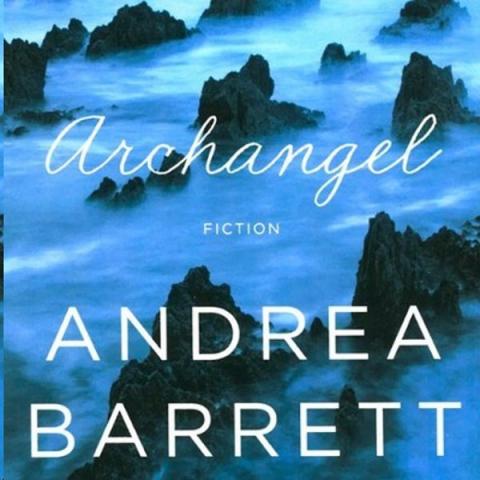Tales of Discovery and Disillusionment in Andrea Barrett’s ‘Archangel’

Archangel
Andrea Barrett
Norton
238 pages
The spirit of scientific enterprise infuses Archangel, Andrea Barrett’s new collection of stories. A winner of the National Book Award, Barrett has carved out a singular niche writing about science, or more specifically, scientists in the decades before and after the turn of the 20th century—when so much of what was considered “true” about the natural world was being dramatically up-ended. It’s rich fodder for fiction, and Barrett excels at depicting the excitement of new discoveries among the (mostly young) scientists of the time.
Characters in Archangel appear and reappear in different stories and at different times in their lives. In the opening story, “The Investigators,” a 12-year-old boy named Constantine Boyd learns about evolution while working on a farm in western New York State. Boyd appears again in the title story, set during and just after World War I, where he pursues his ambitions in veterinary science while getting caught up in the military strife of Russia’s civil war.
Henrietta Atkins, a high school teacher the young Boyd meets in the opening story, emerges as the central figure in “The Island.” A much younger woman in this story, Henrietta studies marine biology under the auspices of a famous natural historian, only to discover, upon reading Darwin’s On the Origin of Species, that her mentor’s belief in divine purpose is tragically misguided.
A science writer named Phoebe also confronts an epochal change in scientific attitudes in “The Ether of Space,” set in 1920. Phoebe, a widow with a young son Sam, attends a lecture by the esteemed Sir Oliver Lodge, proponent of communications with the dead. His dismissal of Albert Einstein’s relativity theory angers Phoebe, still grappling with the loss of her husband and a saddening gulf between her and Sam.
Sam holds center stage in “The Particles,” set in 1939 and perhaps the strongest story in Barrett’s collection. “The Particles” opens dramatically as Sam (a trained geneticist now in his30s) and other passengers of the British ship Athenia, flounder in lifeboats after a German U-boat has torpedoed the vessel.
“Once he was in the water, it was easier to see what had happened to the ship. The stern already low in the waves, the empty lifeboat davits and twisted rigging and the blackened, shattered wood on the deck, where the exploding hatches had blown deck chairs and people to bits.”

From here, the narrative moves back and forth in time. Sam earnestly explores the mysteries of genetics and later falls victim to internecine battles with other more ambitious and conniving scientific colleagues. Returning from a conference in Edinburgh, where he encounters a beloved mentor and a despised rival, he boards Athenia, which is doomed to sink in the Atlantic.
Later, rescued by a U.S. merchant ship, Sam must once again cope with both his mentor and his nemesis. In one of the book’s most moving moments, he also has time to reflect upon the larger questions of his life, including an apparent inability to foster a child:
“Sometimes, when he’d had too much to drink (throughout Prohibition, he and his friends had always had access to lab ethanol), he used to joke around with a toothpick-and-gumdrop figure he called Mr. Heredity. Look at me! he’d have the figure say. Interested since childhood in how we inherit traits, but I can’t reproduce! But although he laughed as hard as anyone when Mr. Heredity drooped his gumdrop head, later, when he began to grasp the fact that no one would ever have his hair or his blocky nose, his height or his big hands, he felt quite otherwise. The day his heart stopped, the day he got hit by a bus (the day a torpedo sank the ship that was taking him home), everything that had led to his father and mother and converged in him would be extinguished.”
Some stories in Archangel suffer from the author’s inclination to tell rather than show. But Andrea Barrett captures the youthful euphoria of life-changing scientific discoveries, placing them squarely in the lives of living, breathing human beings.
Author Bio:
Lee Polevoi, Highbrow Magazine’s chief book critic, is the author of a novel, The Moon in Deep Winter.































































































































































































































































































































